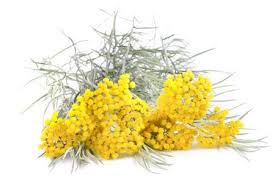Economics - Hydrosols









Economics - Hydrosols
But there is a finite amount of therapeutic quality product available. Every year there is more, but demand is outstripping supply, and as with any natural product, there are no guarantees on yearly output. Nineteen ninety-nine saw a major harvest crisis in Helichrysum italicum, the herb known as immortelle.
The resulting shortage caused the price of immortelle oil to nearly triple. This drastic situation coincided with a huge surge in copnsumer and practitioner interest in the oil hydrosol, which has extraordinary health properties. The result is that immortelle may now sell for the same price as jasmine absolute.
Perhaps it is also because of the economics, at least in part, that hydrosols are becoming better known. As was discussed earlier, the sales of hydrosols can provide significant added income to the distiller. If the revenue from the sale of hydrosols is added to the income from the sale of essential oil, even in a year of low yields distillers will be able to offset some of their losses on the oil with the income from the water.
The distillation business is hard work, a labor of love requiring skilled employees for every aspect, and not everyone makes a good distiller. I like to compare it to wine production: anyone can make wine, but not evryone makes Chateau lafitte.
Reference: Hydrosols: The Next Aromatherapy: Suzanne katty
Articles - Most Read
- Home
- What are Hydrosols
- What are Hydrosols-2
- The Monographs
- How to Make a Hydrosol
- Table of Common Latin Names and pH Values - F - O
- Distilled or Extracted Specifically For Therapeutic Use - 3
- What isn't a Hydrosol?
- Kurt Schnaubelt
- Table of Common Latin Names and pH Values - P - S
- Wholly Water!
- Blue Babies
- Mature Skin
- Supply and Demands
- Recipes Alpha F
- Hydrosols In The Marketplace
- Hemorrhoids
- Nelly GrosJean
- Chemicals: Friends or Foes?
- Water as Medicine
- Genitically Modified Plants
- Water Quality
- Influences
- The Educated Consumer
Articles-latest
- Comptonia peregrinal/Sweet Fern- pH 3.8
- Citrus clementine (fe) Clementine Petitgrain- pH 4.3-4.4
- Citrus aurantium var. amara (flos) /Neroli Orange Blossom-pH3.8-4.5
- Cistus ladaniferus/Rock Rose-pH 2.9-3.1
- Cinnamomum zeylanicum (ec) Cinnamon Bark-pH3.3
- Chamaemelum nobile/Roman Chamomile - pH 3.0-3,3
- Centaurea cyanus/Cornflower/Bachelor's Button-pH 4.7-5.0
- Cedrus atlantical/Cedarwood/Atlas Cedar-pH 4.1- 4.2
- Hydrosols -The PH - Anomalies
- Hydrosols- Establishing Shelf Life and Stability
- Boswellia carterii/FRANKINCENSE
- Asarum canadense/ Wild Ginger/Canadian Ginger
- Artemesia vulgaris / Artemesia
- ARTEMESIA DRACUNCULUS - TARRAGON
- Angelica archangelica / Angelica Root - Hydrosols
- The Key, or More Correctly, the pH - 2 - Hydrosols
- The Key, or More Correctly, the pH-Hydrosols
- The Hard pHacts - Hydrosols
- Calamus Root/Sweet Flag - ACORUS CALAMUS
- Yarrow - Achillea millefolium - Hydrosols
- Balsam Fir - Abies balsamea - Hydrosols
- How the Monograps are Presented
- The Three-Week Internal Protocol - Hydrosols
- Protocols - Hydrosols

